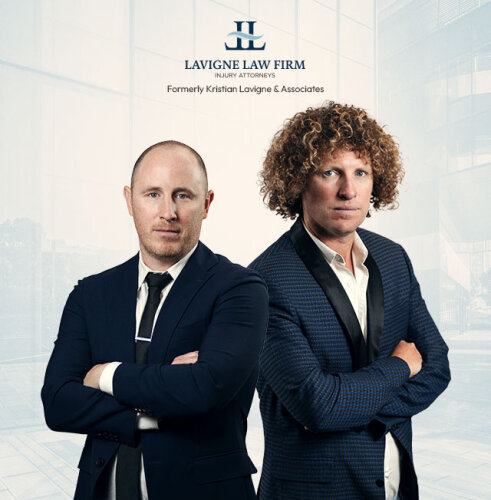Best Defamation Lawyers in New Mexico
Share your needs with us, get contacted by law firms.
Free. Takes 2 min.
Or refine your search by selecting a city:
List of the best lawyers in New Mexico, United States
About Defamation Law in New Mexico, United States
Defamation is a legal term for an injury to someone's reputation caused by a false statement. In New Mexico, as in other states, defamation can be classified into two types: libel, which refers to written defamation, and slander, which concerns spoken defamation. The primary goal of defamation law in New Mexico is to protect individuals and organizations from false statements that harm their reputation while balancing the right to free speech under the First Amendment.
To establish a case of defamation in New Mexico, a person usually needs to prove that a false and defamatory statement was made about them, that it was communicated to a third party, and that it caused harm to their reputation. In some cases, particularly those involving public figures, there may also be a need to demonstrate that the statement was made with knowledge of its falsity or with reckless disregard for the truth (known as "actual malice").
Why You May Need a Lawyer
Defamation cases can be complex and emotionally challenging. Here are some common situations where you may require the guidance of a qualified attorney:
- You believe you have been defamed: If someone has made or published a false statement that has damaged your reputation, an attorney can help you evaluate the strength of your case and consider potential remedies, including demanding a retraction or filing a lawsuit for damages.
- You are accused of defamation: If you have received a cease and desist letter or are being sued for defamation, legal counsel can help defend your rights, advise you on how to respond, and represent you in negotiations or in court.
- Online defamation concerns: The internet adds complications to defamation claims due to issues of jurisdiction and the anonymous nature of some communications. An attorney can help track down anonymous posters and work to remove defamatory content.
- Media, business, or public figure involvement: If your case involves media organizations, businesses, or you are a public figure, the legal standards and procedures can be more complicated, often requiring expert legal assistance.
- Understanding damages: Determining the harm caused by defamatory statements, especially with respect to lost income or emotional distress, often requires legal insight.
Local Laws Overview
Defamation law in New Mexico is shaped by both state statutes and court decisions. Here are some key aspects unique to local law:
- Statute of limitations: In New Mexico, the deadline for filing a defamation lawsuit is generally three years from the date the statement was made or published. If you miss this deadline, you may lose your right to file a suit.
- Burden of proof: The person claiming defamation (the plaintiff) must prove that the statement was false, was published to a third party, was unprivileged, and caused damage.
- Public figures and actual malice: If you are a public figure or public official, you must show that the defamatory statement was made with actual malice, which means with knowledge of its falsity or reckless disregard of the truth.
- Opinion versus fact: Pure opinion statements are generally protected and cannot form the basis for a defamation claim. Only false statements of fact are actionable.
- Privileged communications: Some statements are considered privileged and cannot be the basis of a defamation claim. For example, statements made during judicial proceedings or by government officials in their official duties may be protected.
- Damages: Damages in defamation cases may include compensation for actual harm, presumed harm, or punitive damages, depending on the circumstances.
Frequently Asked Questions
What is the difference between libel and slander in New Mexico?
Libel refers to written or published defamatory statements, while slander refers to spoken defamatory statements. Both are treated as forms of defamation under New Mexico law, but the method of communication may affect damages and how the courts view the case.
What must I prove to win a defamation lawsuit in New Mexico?
You must generally prove that a false statement was made about you, it was communicated to someone else, it was unprivileged, and it caused harm to your reputation. If you are a public figure, you must also prove actual malice.
Is there a deadline to file a defamation claim in New Mexico?
Yes, there is a three-year statute of limitations for defamation cases in New Mexico. The clock typically starts running from the date the statement was first made or published.
Can I sue someone for defamation if the statement was only made online?
Yes, defamatory statements made online, including on social media or websites, can lead to a lawsuit. New Mexico courts recognize the internet as a form of publication for defamation cases.
Are statements of opinion protected in New Mexico?
Yes, statements of pure opinion are generally protected under free speech laws and are not usually considered defamation. Only false statements of fact can be defamatory.
What is a "cease and desist" letter, and should I send one?
A cease and desist letter is a formal request demanding that someone stop making defamatory statements. It may help resolve the issue without a lawsuit. An attorney can help you draft and send this letter effectively.
Can businesses be victims of defamation in New Mexico?
Yes, businesses and other organizations can be defamed. Damages can be sought for losses resulting from false statements that harm business reputation or future earnings.
What if the defamatory statement was made anonymously?
It is possible to pursue legal action even if the person making the statement is anonymous. Attorneys can use legal processes to try to uncover the identity of the person responsible.
What kinds of damages can I recover in a defamation lawsuit?
You may be able to recover damages for loss of reputation, emotional distress, and in some cases, punitive damages. The exact amount depends on the harm suffered and the circumstances of the case.
Is truth a defense to defamation in New Mexico?
Yes, truth is an absolute defense to defamation. If the statement made about you is proven to be true, it is not considered defamatory under New Mexico law.
Additional Resources
If you need more information or support regarding defamation in New Mexico, consider these helpful resources:
- New Mexico State Bar Association: Offers lawyer referrals and educational resources on a variety of legal topics including defamation.
- New Mexico Courts: Provides access to court forms, case lookup, and legal self-help resources relevant to civil suits, including defamation.
- American Civil Liberties Union of New Mexico: Can offer information about the intersection of free speech rights and defamation.
- Local Legal Aid Organizations: May offer free or low-cost legal assistance for those who qualify.
- Public Libraries and Law Libraries: Many offer guides and can help you access legal information about your rights in defamation cases.
Next Steps
If you believe you are the victim of defamation, or if you have been accused of defamation in New Mexico, here is how you can proceed:
- Document all relevant information about the statement, including copies or recordings if possible, and details on where, when, and to whom it was published.
- Avoid contacting or retaliating against the other party directly. Anything you say could potentially be used against you.
- Reach out to a qualified attorney who practices defamation law in New Mexico. They can help you understand your rights and potential remedies.
- Consider initial steps such as sending a cease and desist letter or requesting a retraction before resorting to litigation, if appropriate.
- Be mindful of the statute of limitations and make sure to act promptly to protect your rights.
- Organize any evidence or documentation, such as witness statements, financial records, or written communications, that may support your case.
Legal professionals can guide you through the complexities of defamation law and help you achieve a just resolution to your situation.
Lawzana helps you find the best lawyers and law firms in New Mexico through a curated and pre-screened list of qualified legal professionals. Our platform offers rankings and detailed profiles of attorneys and law firms, allowing you to compare based on practice areas, including Defamation, experience, and client feedback.
Each profile includes a description of the firm's areas of practice, client reviews, team members and partners, year of establishment, spoken languages, office locations, contact information, social media presence, and any published articles or resources. Most firms on our platform speak English and are experienced in both local and international legal matters.
Get a quote from top-rated law firms in New Mexico, United States — quickly, securely, and without unnecessary hassle.
Disclaimer:
The information provided on this page is for general informational purposes only and does not constitute legal advice. While we strive to ensure the accuracy and relevance of the content, legal information may change over time, and interpretations of the law can vary. You should always consult with a qualified legal professional for advice specific to your situation.
We disclaim all liability for actions taken or not taken based on the content of this page. If you believe any information is incorrect or outdated, please contact us, and we will review and update it where appropriate.
Browse defamation law firms by city in New Mexico
Refine your search by selecting a city.
















